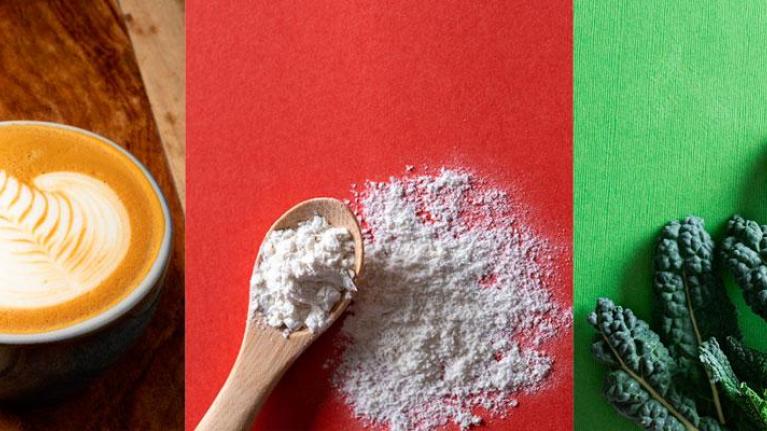
- Trends & Insights
- Plant Based
What Goes Into the Perfect Plant-Based Beverage?
When plants are the key ingredient, they may need a little help to perform up to your standards. That's why many plant-based products include ingredients to enhance the flavor, mouthfeel, consistency, or other factors that you expect—and that your customers demand.
Key ingredients for peak performance
Protein
Some protein is found naturally in the plants used to make these products, like soy and peas. In addition to being an important nutrient, it also helps gel yogurt and cheese and interacts with enzymes to create specific tastes and textures. Beverages formulated for baristas usually contain additional protein to help them perform up to coffee house standards.
Fat/Oil
Fat is an essential component of dairy, responsible for its creamy appearance, texture, and mouthfeel. However, since it's lacking in many plants, fats and oils from canola, sunflower seed, olives, soybeans, or coconut may be added to products to recreate the experience that people expect.
Sugar
Plants contain varying amounts of natural sugars which can affect the sweetness of the final product. Cane sugar may be added to some plant-based products to recreate the sweetness of lactose naturally found in cow’s milk, reduce bitterness, or simply help the plant ingredients blend more easily so their flavor does not overwhelm a recipe.
Foaming Agents
Some products, such as pea- or oat-based beverages, create foam easily when subjected to steam or frothing. Other ingredients may also be added to help produce foam and froth in foods and beverages.
Stabilizers & Emulsifiers
Xanthan gum (derived from microbial fermentation), gellan gum (derived from microbial fermentation), guar gum (a natural extract from guar beans), or carrageenan (a seaweed extract) may be added to stabilize and thicken these products, creating a creamy texture. Soy and sunflower lecithin are also used for emulsifying, and other plant products can be used as buffer systems.
Flavors
The presence or absence of strong flavors can both work in a product’s favor. For example, the rich taste of coconut is a plus in some dishes, while neutral flavors are preferred when you want other ingredients to shine. Some products also contain vanilla, chocolate, or other flavors to enhance their taste.
Nutrients
Some of the plants used to make these products may be lacking in some vitamins or minerals needed for human health. For that reason, they may be fortified with key nutrients such as vitamin B12, iron, calcium, or vitamin D, which are lacking in many people’s diets.
The information provided is based on a general industry overview, and is not specific to your business operation. Each business is unique and decisions related to your business should be made after consultation with appropriate experts.
